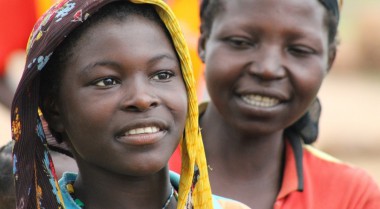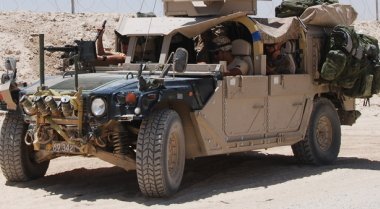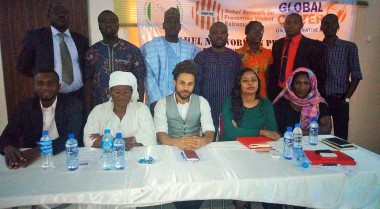
Ce qu'il faut faire pour prévenir la violence électorale : Pleins feux sur les élections de 2018 en Sierra Leone
Cet article a été publié pour la première fois sur le site web d'Impakter.
L'attention de la communauté internationale s'est récemment portée sur les approches inclusives visant à prévenir les conflits (violents), en particulier à l'approche de la publication de la version complète du rapport des Nations unies et de la Banque mondiale intitulé « Les chemins de la paix ». Nous savons tous que la prévention est moins coûteuse et rentable, mais le débat sur le comment et le pourquoi de la prévention reste souvent en suspens. Cet article est le premier d'une série qui vise à mettre en lumière le travail de prévention effectué dans un certain nombre de domaines connexes et à fournir des pistes locales pour une paix durable. La série explorera des histoires de terrain sur les approches de la prévention des conflits (violents) et les aspects du travail et des efforts de la société civile qui restent souvent dans l'ombre.
Prévention de la violence électorale
Les élections peuvent jeter les bases d'une bonne gouvernance lorsqu'elles sont gérées efficacement. Parfois, les processus pré- et post-électoraux peuvent déclencher une violence politique généralisée, en particulier dans les sociétés fragiles, comme on l'a vu récemment en République démocratique du Congo et au Togo. Prévenir la violence électorale avant qu'elle n'éclate n'est pas seulement une possibilité, c'est aussi l'option conseillée pour utiliser et renforcer les mécanismes d'alerte précoce existants ou établis. Cependant, les pays continuent de manquer à leur engagement en matière de prévention.
La prévention de la violence électorale ne se limite pas à la tenue d'élections libres et équitables, mais nous devons nous rappeler qu'un processus électoral pacifique n'est pas une garantie de bonne démocratie. Les élections de 2011 en République démocratique du Congo ont montré que si la qualité démocratique des scrutins s'était améliorée par rapport aux élections précédentes, les élections ont été les plus frauduleuses de l'histoire du pays.
Les Sierra-Léonais observeront leurs élections générales le 7 mars 2018. La police a décidé de sanctionner la circulation des véhicules le jour du scrutin, ce qui a déclenché des tensions chez les citoyens ordinaires, qui craignent que leur droit à la liberté de circulation et d'association/de réunion n'ait été altéré et violé. En discutant avec un grand nombre de citoyens dans les rues et avec ceux dont les opinions ont été exprimées dans les médias et par SMS, ils ont perçu cette action de la police comme une tentative délibérée d'interférer avec le processus électoral, car elle a également le potentiel de déclencher des violences.
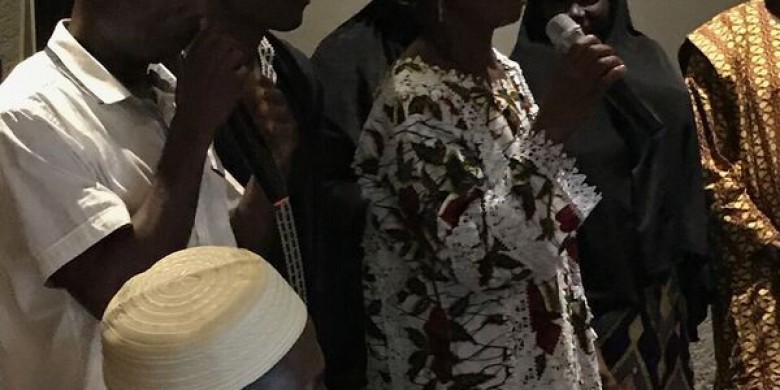
Qui doit être impliqué ?
C'est aux autorités nationales qu'il incombe au premier chef de veiller à ce que le processus électoral soit transparent, ouvert à tous et pacifique. Les partis politiques, les médias locaux, la société civile, y compris les femmes et les jeunes, peuvent également jouer un rôle constructif, à condition de disposer de l'espace nécessaire pour participer et d'avoir la possibilité d'exprimer leurs griefs.
Cependant, dans de nombreux pays africains, la démocratie reste une lutte constante pour la participation égale et active des organisations de la société civile, y compris les femmes, les jeunes et les handicapés physiques, dans tous les domaines et à tous les niveaux, en particulier en ce qui concerne la contribution à des élections plus inclusives, libres, équitables et crédibles, ainsi qu'à la prise de décision dans un contexte plus large d'accords de gouvernance et d'approches plus inclusives, comme le préconise le New Deal for Engagement in Fragile States (Nouveau pacte pour l'engagement dans les États fragiles).
Au cours de la dernière décennie, la sous-région de l'Afrique de l'Ouest a connu de violents conflits, en particulier dans le bassin de l'Union du fleuve Mano, qui comprend le Liberia, la Sierra Leone, la Guinée et la Côte d'Ivoire. De nombreux jeunes ont été les acteurs et les victimes de ces conflits. Une plus grande proportion de jeunes a été continuellement utilisée par les politiciens pour déclencher la violence pendant les élections.
Il est indéniable que les jeunes doivent être perçus comme jouant un rôle positif dans la promotion de la paix, de la gouvernance et de la démocratie. Il est nécessaire de sensibiliser davantage les jeunes, ce qui peut se faire de différentes manières, par exemple en organisant des réunions de dialogue, des réunions publiques, des discussions de groupe, des ateliers de formation, en créant davantage d'établissements d'enseignement supérieur et de formation professionnelle, en fournissant des microcrédits sous la forme de systèmes de prêts renouvelables, en créant des coopératives locales, etc.
Le cadre de la nouvelle donne
La Sierra Leone, membre du g7+, un groupe qui rassemble 20 pays touchés par des conflits, et signataire du New Deal for Engagement in Fragile States (The New Deal), est restée un État relativement pacifique et stable au cours des neuf premières années qui ont suivi la déclaration de la fin de la guerre civile. Pourtant, au cours de la dernière décennie, de nombreuses élections ont tourné à la violence, les jeunes jouant un rôle actif dans ces processus violents. Faire participer activement les jeunes et d'autres groupes socialement exclus, tels que les femmes et les personnes handicapées, à la promotion de la paix et de la non-violence, ainsi qu'au renforcement d'une transition démocratique pacifique et d'un système de gouvernance efficace, reste un défi.
Cet article vise à présenter les efforts de la société civile en matière de prévention des conflits en Sierra Leone.
Les membres de la Plateforme de la société civile pour la consolidation de la paix et de l'État (CSPPS) en Sierra Leone estiment qu'en intégrant les jeunes (qui constituent la majorité de la population selon le recensement de 2015) dans les processus de paix et de prise de décision, la probabilité d'une éruption de violence et d'une mauvaise gouvernance serait minimisée.
Actuellement, en ce qui concerne les élections de 2018 en Sierra Leone, des signes précurseurs de conflits pour une violence potentielle liée aux élections sont visibles. Ces signes précurseurs comprennent la prédominance dans les médias de langages agressifs et de discours de haine entre et parmi les partis politiques et leurs partisans ; des rumeurs d'attaques politiquement motivées ; des activités violentes de jeunes politiquement chargés ; l'abus de drogues, etc. ainsi que des agressions contre les femmes. Tous ces éléments peuvent s'avérer incitatifs et compromettre le processus électoral.
L'indépendance et la neutralité de la police sont remises en question. La preuve en est que les 16 partis politiques de l'opposition se sont dissociés de la signature d'une déclaration de la police, engageant tous les partis politiques et leurs partisans à ne pas descendre dans la rue le jour des élections (7 mars 2018), après avoir déposé leur bulletin de vote.
Le rôle des chefs traditionnels dans l'ensemble du processus électoral devient également préoccupant. À cet égard, les dirigeants de certains partis politiques ont commencé à se plaindre du rôle partial de certains chefs traditionnels dans certaines régions et chefferies - en bref, il y a une forte suspicion d'ingérence politique.
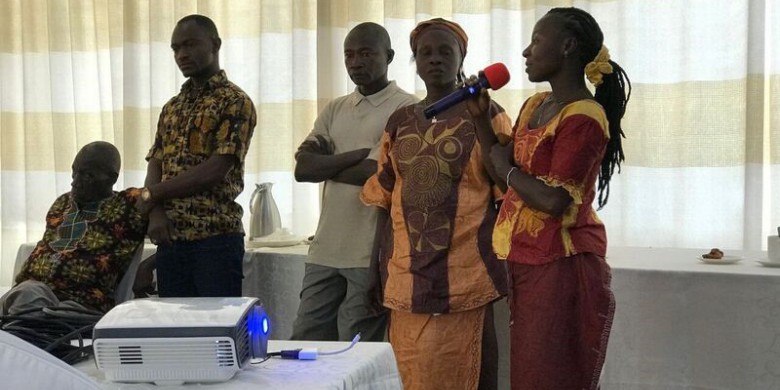
Mesures préventives du gouvernement et engagement civique
L'équipe pays de la CSPPS soutient les efforts du gouvernement de la Sierra Leone pour atténuer la violence électorale, à savoir :
- L'influence du gouvernement au sein des organisations multilatérales pour éviter que leurs activités d'observation des élections ne deviennent des rituels obligatoires, et pour tenter au contraire d'inspirer la confiance dans les processus électoraux et de prévenir les conflits ;
- La proactivité et l'approche prospective du gouvernement dans son soutien aux processus électoraux d'autres pays africains et aux mécanismes de consolidation de la paix les pays frères (Ghana, Guinée et Liberia) ; et
- Le gouvernement a lancé des recrutements massifs au sein de la police sierra-léonaise afin de renforcer les effectifs et d'aider à maintenir l'ordre dans le pays tout au long des processus électoraux actuels.
Il convient toutefois de noter que l'augmentation des effectifs de police a remis en question la neutralité de la police.
Un espace civique ouvert est essentiel à toute élection démocratique et il ne fait aucun doute que la société civile a un rôle clé à jouer dans la réduction de la dynamique des conflits liés aux élections et dans la promotion d'un environnement électoral pacifique.
Un consortium d'organisations de la société civile en Sierra Leone s'est réuni pour concevoir le Manifeste des Citoyens, comme un outil de sensibilisation des jeunes, des femmes et d'autres électeurs, pour comprendre clairement le pouvoir en eux, en exprimant un seul vote pour chacun des candidats politiques et sa pertinence pour la réforme de la gouvernance lors des élections du 7 mars 2018. Chaque vote est capable de déterminer le changement de gouvernance auquel tous, en tant que nation, aspirent.
Le Manifeste des citoyens sert également d'instrument d'orientation pour inspirer stratégiquement les dirigeants des autres partis politiques dans l'élaboration de leurs propres manifestes qui peuvent inclure les aspirations et les besoins des citoyens en matière de développement à tous les niveaux.
Un autre exemple d'initiative de la société civile visant à prévenir les conflits liés aux élections est le lancement national de la résolution 2250 des Nations unies sur la paix et la sécurité par l'équipe nationale de la CSPPS par l'intermédiaire du Partenariat des jeunes pour la paix et le développement (YPPD), qui a conduit à la création d'une plateforme inter-agences pour la mise en œuvre de la RCSNU 2250. Les interventions postérieures au lancement ont contribué à réorienter les jeunes vers une approche beaucoup plus significative et pacifique des élections.
Cette initiative unique de la société civile a permis aux partenaires respectifs de New Deal (gouvernement et agences de donateurs) de consolider les messages de sensibilisation et d'éducation communautaire autour de l'exploitation du potentiel des jeunes (y compris les primo-votants).
Espace de dialogue formalisé
Les membres de l'équipe nationale de la CSPPS soutiennent que ces efforts ne peuvent être soutenus sans des espaces de dialogue convenus et formalisés, car ils permettent aux différents acteurs de fournir un retour d'information sur les réalités locales d'une manière consolidée.
Un dialogue au niveau national (tel qu'il a été engagé dans le cadre du dialogue international) contribuera aussi énormément à la consolidation de la paix, améliorant ainsi les perspectives d'une paix durable et d'un processus de développement qui mènerait à un développement national consultatif.
À l'avenir, il peut également contribuer de manière significative aux réformes prévues en matière de gouvernance nationale. Un dialogue national peut également réduire les tendances aux tensions, à la malveillance et à la rancune entre les partis politiques, les hommes politiques et leurs partisans. Il intensifie la création de synergies, de réseaux et de partenariats entre les acteurs de la consolidation de la paix, les OSC, les donateurs/autres partenaires de développement, le secteur privé et les représentants du gouvernement.
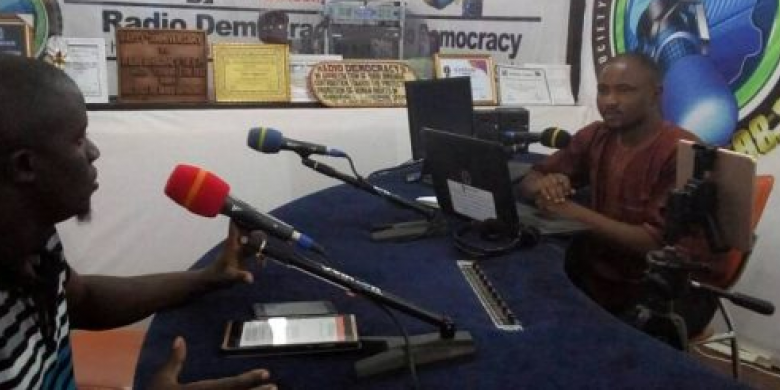
Un appel à l'action
La société civile demande que les mesures suivantes soient prises avant les élections en Sierra Leone qui auront lieu le 7 mars :
Afin de continuer à défendre des valeurs démocratiques claires, l'appareil de sécurité, y compris la police, doit agir de manière professionnelle dans la prestation de ses services tout au long du processus électoral ;
- L'appareil de sécurité doit également garantir la neutralité et maintenir l'observation et le respect des droits de l'homme et des normes démocratiques à tous les niveaux, conformément aux dispositions pertinentes inscrites dans la constitution de la Sierra Leone, qui sont liées à tous les processus électoraux, afin de réaliser des élections pacifiques, crédibles, libres et équitables ;
- Le vote étant un droit et une responsabilité civiques, aucun mouvement des citoyens le jour du vote ne devrait être restreint, car agir autrement serait non seulement contraire à la constitution, mais aussi aux normes mondiales des droits de l'homme en général ;
- Le gouvernement doit encourager des engagements soutenus qui établissent un équilibre entre le soutien technique et logistique d'une part, et les engagements politiques d'autre part, de la part des partenaires donateurs, ce qui pourrait contribuer à améliorer la qualité démocratique des élections en Sierra Leone ; ceci, à son tour, pourrait contribuer à réduire le risque de violence électorale ;
- Enfin, la Country Team souhaite attirer l'attention du gouvernement de la Sierra Leone sur le respect des obligations faites dans les instruments internationaux signés et ratifiés tels que le New Deal for Engagement in Fragile States, y compris ses ensembles de principes, et la Charte africaine de la démocratie, des élections et de la gouvernance, chapitre 7. Élections démocratiques, article 17
NOTE : l'équipe pays de la CSPPS en Sierra Leone comprend des membres de l'Association sierra-léonaise des organisations non gouvernementales, de DADA-Sierra Leone, de WASHNet et de Fambul Tok.

